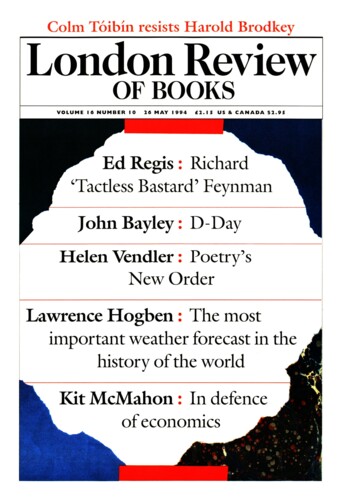Capitalism without Capital
Geoffrey Hawthorn, 26 May 1994
Even at the end of his new book, it’s not clear where Edward Luttwak is coming from, as they say in his country. He leaves no doubt, however, about where he dreads coming to. Instead of being smoothed through ‘the spotless elegance of Narita or Frankfurt or Amsterdam or Singapore’, the hapless international traveller who comes into New York’s Kennedy Airport will walk into one of the tatty terminals that near-bankrupt airlines no longer maintain, mildly surprised at the naked plywood and unfinished gypsum board. He will stand in line for an hour or two at passport control, perhaps more if several planes have arrived, as everyone knows they will, together. Already unhappy at his luggage having been thrown off the belt by angry handlers, he’ll have to present it to an unhelpful customs official. And if he’s not transferring to an internal flight, in which case he’ll have to suffer clerks tapping in his connection with one finger, more angry ground staff, and another broken walkway, he’ll emerge to be bounced over potholes, past decayed public housing and corners piled high with garbage, until his smoking bus or audibly unsafe taxi, ‘usually driven by an unkempt, loutish driver who resembles his counterparts in Kinshasa or Islamabad rather than London or Tokyo, where licensing requirements are strict and dress codes enforced’, drops him in front of the beggars outside his Manhattan hotel. Safe at last in the lobby, he will pause before choosing one of the tours that now offers a drive past the drug dealers on the streets of the South Bronx.





